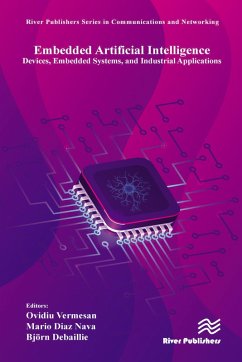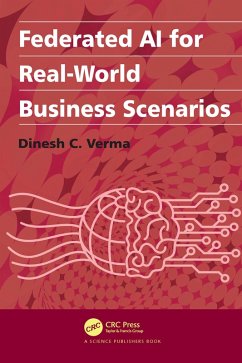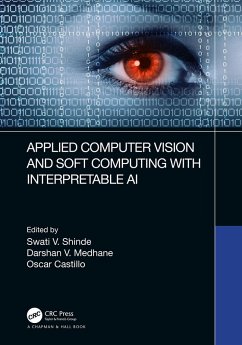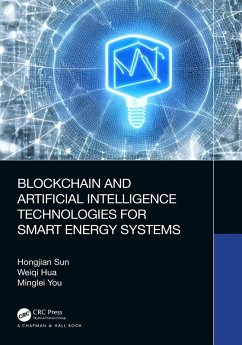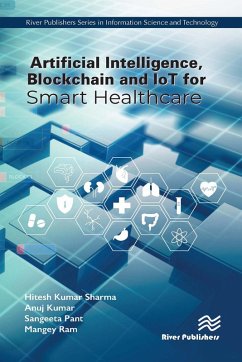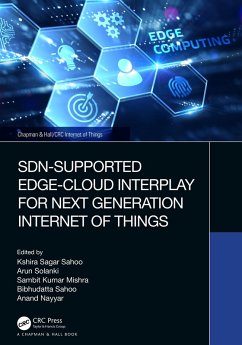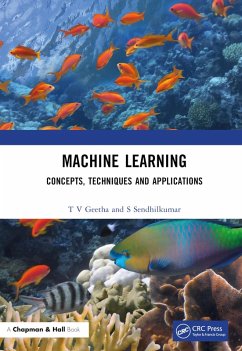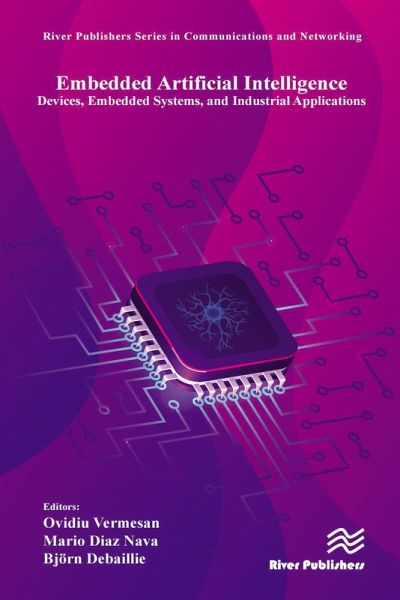
Embedded Artificial Intelligence (eBook, PDF)
Devices, Embedded Systems, and Industrial Applications
Redaktion: Vermesan, Ovidiu; Debaillie, Björn; Nava, Mario Diaz
Versandkostenfrei!
Sofort per Download lieferbar
94,95 €
inkl. MwSt.
Weitere Ausgaben:

PAYBACK Punkte
47 °P sammeln!
Recent technological developments in sensors, edge computing, connectivity, and artificial intelligence (AI) technologies have accelerated the integration of data analysis based on embedded AI capabilities into resource-constrained, energy-efficient hardware devices for processing information at the network edge.Embedded AI combines embedded machine learning (ML) and deep learning (DL) based on neural networks (NN) architectures such as convolutional NN (CNN), or spiking neural network (SNN) and algorithms on edge devices and implements edge computing capabilities that enable data processing a...
Recent technological developments in sensors, edge computing, connectivity, and artificial intelligence (AI) technologies have accelerated the integration of data analysis based on embedded AI capabilities into resource-constrained, energy-efficient hardware devices for processing information at the network edge.
Embedded AI combines embedded machine learning (ML) and deep learning (DL) based on neural networks (NN) architectures such as convolutional NN (CNN), or spiking neural network (SNN) and algorithms on edge devices and implements edge computing capabilities that enable data processing and analysis without optimised connectivity and integration, allowing users to access data from various sources.
Embedded AI efficiently implements edge computing and AI processes on resource-constrained devices to mitigate downtime and service latency, and it successfully merges AI processes as a pivotal component in edge computing and embedded system devices. Embedded AI also enables users to reduce costs, communication, and processing time by assembling data and by supporting user requirements without the need for continuous interaction with physical locations.
This book provides an overview of the latest research results and activities in industrial embedded AI technologies and applications, based on close cooperation between three large-scale ECSEL JU projects, AI4DI, ANDANTE, and TEMPO.
The book's content targets researchers, designers, developers, academics, post-graduate students and practitioners seeking recent research on embedded AI. It combines the latest developments in embedded AI, addressing methodologies, tools, and techniques to offer insight into technological trends and their use across different industries.
Embedded AI combines embedded machine learning (ML) and deep learning (DL) based on neural networks (NN) architectures such as convolutional NN (CNN), or spiking neural network (SNN) and algorithms on edge devices and implements edge computing capabilities that enable data processing and analysis without optimised connectivity and integration, allowing users to access data from various sources.
Embedded AI efficiently implements edge computing and AI processes on resource-constrained devices to mitigate downtime and service latency, and it successfully merges AI processes as a pivotal component in edge computing and embedded system devices. Embedded AI also enables users to reduce costs, communication, and processing time by assembling data and by supporting user requirements without the need for continuous interaction with physical locations.
This book provides an overview of the latest research results and activities in industrial embedded AI technologies and applications, based on close cooperation between three large-scale ECSEL JU projects, AI4DI, ANDANTE, and TEMPO.
The book's content targets researchers, designers, developers, academics, post-graduate students and practitioners seeking recent research on embedded AI. It combines the latest developments in embedded AI, addressing methodologies, tools, and techniques to offer insight into technological trends and their use across different industries.
Dieser Download kann aus rechtlichen Gründen nur mit Rechnungsadresse in A, B, BG, CY, CZ, D, DK, EW, E, FIN, F, GR, HR, H, IRL, I, LT, L, LR, M, NL, PL, P, R, S, SLO, SK ausgeliefert werden.




